The world after COVID 19 is going to face a global recession. Major players in the car business, travel industry or even airlines will be supported with government grants or subsidized loans. But a complete sector, who tremendously contributes to the European economy and to its culture seems to be left behind. An interview series in 3 episodes with people from across the scene shall emphasize how big this radius actually is, and therefore that this sector matters. Welcome to “The Scene speaks Episode 3”
Team Hardstyle Mag
Welcome back to the interview series “The Scene speaks”. In our first two episodes we already spoke to several people of the scene, covering a vast area of involved persons and companies. We really hope that the number of persons has already emphasized how big the circle of involved persons and industries can be drawn around the festival sector. But we still have some more interview partners. So let’s kick off episode 3:
PLEASE INTRODUCE YOURSELF WITHIN 15 WORDS
Pawel: Hey, I’m Regain – music producer and DJ from Poland.
Krijn: I’m Krijn Broekhuijsen, in the Hardstyle scene part of Degos & Re-Done
Anthony: Anthony Donner, former Chief Editor of DJ Mag and Pleasure Magazine, creator and publisher of the Dutch DJs book series, photographer, journalist, columnist, co-organizer of the Priority Awards, and the DJ marathons. And now busy with the first book about Hardstyle: This Is Hardstyle
Robin: I am Robin Greeven, founder and manager of Heart for Hard.
Amrish: Amrish Raghosing. DJ Producer Dutch Hustlaz, Owner DJ School Alphen. CEO Priority Awards
Marvin: My name is Marvin, a nineteen years old Raw Hardstyle DJ/Producer under the name of Vasto.

HaMa: How did you come into the scene and to your current role?
Marvin: I started playing the drums when I was 6 and started producing Hardstyle when I was 15. At first I made Euphoric Hardstyle (with releases at Dutch Master Works), from there on my sound got more Raw (with releases at Rough Recruits). Recently I signed with APEX Records, where I got musical freedom to do what I really want.
Pawel: It was a pretty long process. After releasing some music projects in different Hardstyle labels, I eventually joined Heart for Hard label and agency. After that I basically started my career – playing around the world and receiving a lot of support of my music from different artists.
Anthony: ? I started as an party photographer for Thunder Magazine and ID&T and other magazines like Basic Groove, Update Magazine, Strictly and Strobe. After that I specialized in portrait photography. Later I started to make after movies for events. I started to creating the first Dutch DJs book after that I went Chief Editor of DJ Mag and later on Pleasure Magazine. Then I went busy with Amrish Raghosing with the Priority Awards and the DJ marathons.
Krijn: Producing music for 15 years now, first Degos & Re-Done release was in 2008
Robin: It all started with a huge appreciation for the harder styles scene. I grew up with friends that were hardcore dj’s and we visited a huge number of events where I could experience the artist side and the visitor side of an event. Fascinated by this and with my Multimedia/ Interaction Designer background, we started organizing our own events & radio show concepts. The ‘Heart for Hardstyle radioshow’ grew more and more until we had a strong team of residents & fans behind it. I united these resident artists and bundled our powers to start a record label and agency. A place to bring our creative minds together and where we continuously see challenges to improve ourselves. My role has always been on the visual/marketing side behind the projects of Heart for Hard, Regain, Neroz, Udex etc.
Amrish: I started at a young age organizing my own events. Currently I am a DJ Producer under the name Dutch Hustlaz, owner of DJ School Alphen where we have students from all over the world coming to learn to dj in all kinds of styles. Also the CEO of the Priority Award. That’s a new DJ Award, that we will announce in a few weeks!
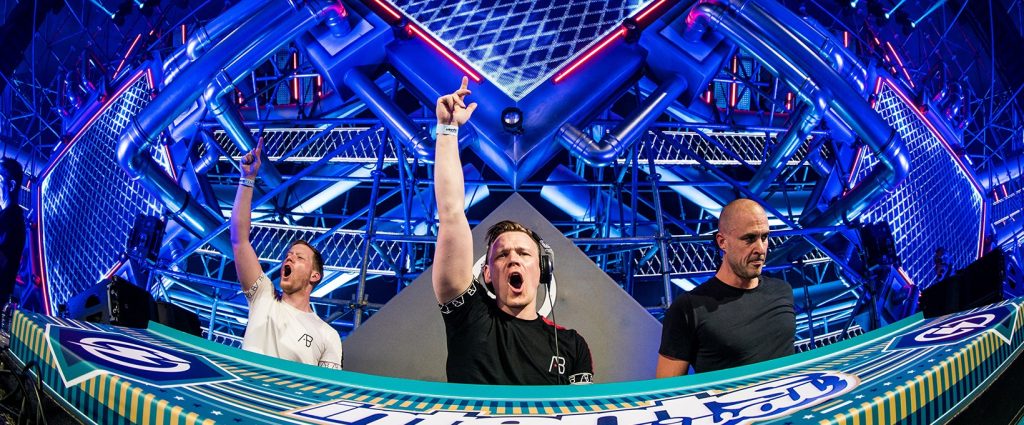
HaMa: How do you personally experience the current corona situation in your private life?
Anthony: My experience is that I must invent myself to be relevant in my work and projects.
Krijn: There are no big changes in my private life to be honest, only things like… going to the cinema or shopping are different for me.
Amrish: I am still busy working in my company and my concepts. But I hear a lot of people around me that are stressed in these insecure times.
Pawel: Finally, I’ve got some time to rest! I know it’s a rough answer but most of the events happen in different countries than Poland, so every booking for me means flights and having a hotel life. That is really exhausting. Now – when events don’t take place – I can be more focused on music production and think more about new ideas/music projects. Next to this, I can also spend more time with my family and friends.
Marvin: Not that much has changed actually. My daily job still continued. The only change I really noticed in my private life, is not seeing my friends that often. Same goes for colleagues within the Hardstyle scene of course.
Robin: Normally I would always be on the road with the artists for an event, video clip or a meeting. In my private life, a visit to a restaurant or cinema was now out of the question. This all made everything somewhat boring, but it made room for other aspects of life. Family visits, time to reflect on yourself and being ready for the moment this normal routine will continue again. I have to say that it was good for my eating pattern. I can’t remember the last time I was forced to visit the MC Donald’s around 01:00/02:00 for a snack at night after some performances.

HaMa: A lot of people love going to festivals – but as they only see the result on that day they are there to attend – we would like to highlight the big amount of arrangements there are for a festival now. Can you please give us a rough idea how long it takes to prepare, organize, and conduct a festival by maybe taking one known festival as an example?
Amrish: For the award show around the Priority Awards we need a preparation of 4 to 6 months. But that investment is lost because of coronavirus. That’s why we are preparing an online event.
Anthony: This question is not relevant for my kind of work. But I know how much time it cost to make arrangements for the initiatives I producing.

HaMa: With those big projects and so many companies involved (like catering, crew support, security) who is directing everting and how? Is there something like a council that supervises everything?
Amrish: In my team, we have one person who arranges all the meetings and planning around our events. That way everyone knows there is one person they have to contact for the planning.
Anthony: This question is not relevant for my company.

Let us talk more about the current situation now.
HaMa: How is your business currently affected?
Amrish: We lost all our students from abroad due to the corona and the travel restrictions and we have now less students. But we have an increase of Dj’s that are now working on fine tuning there DJ skills. So that’s some kind of bonus. Also a few companies that we were working with went bankrupt during the corona. As a result, we lost our investments.
Robin: It affected the business greatly. From a full agenda to an empty one. There were even some nice international performances planned which were forced to be canceled. It doesn’t only take away our income, but it is also the fun and motivating experiences that are being taken away. Luckily we could focus on new projects such as the virtual world events we did for Rebirth Festival, Emporium & Shockerz and of course the music projects
Pawel: Because of the whole break, I don’t have the opportunity to premiere my music at the festivals. And that’s the best way to show people new music in my opinion. All the ideas for music clips or plans that I and my agency had been suspended. There’s also a break for me to earn money and playing at festivals is my only income.
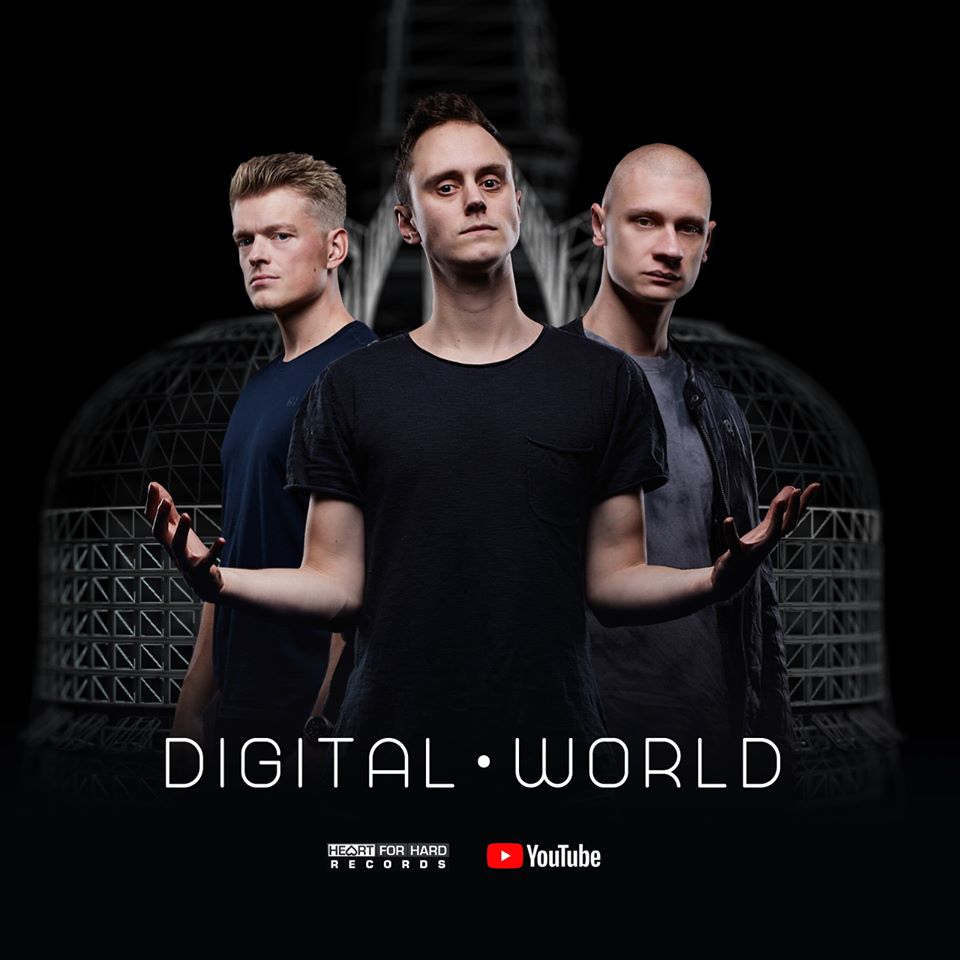
Krijn: So at the moment of writing this (20th of June) there are no gigs this upcoming weekends. Normally we can work here in 2 separate studios and during the week there are a lot of moments that there are people passing by for a cup of coffee. That’s completely changed!
I work in the studio now on new tracks on my own, and sometimes peter is working on his graphical work in the other studio. That’s it. We communicate more online now. My work routine is changed, so it’s a bit more relaxed but I also made some more hours during the day.
Anthony: A big part of my freelance jobs are on hold. We are busy with initiatives like the DJ marathons to make a difference and give a podium for the DJs and give entertainment to the audience. A big part of the sponsors didn’t go further with our Priority Awards.
Marvin: Well, of course, all my bookings got canceled, which sucks… this year I would play for the first time at for example Rebirth, Intents Festival and Defqon 1. Although I decided that I still want to put out my album. I also think that because of the corona situation people were happy with having a lot of new music.

HaMa: How is your business surrounding affected?
Pawel: I don’t play music on the indoor/outdoor events and basically that’s all. I’m still able to do my social media together with my team, keep in touch with my fans, and make new music to make people happy. I’m always trying to find a positive thing in this bad time.
Marvin: I can’t see my colleagues nor fans because of the canceled bookings. Next to management meetings face to face, so I now do them by Skype/Facetime.
Krijn: Well, When I have a digital meeting with the label or most work calls are about COVID19 related solutions or problems. Sometimes that’s about money, about release schedules and the future etc. etc. I can feel that everyone is in ‘COVID’’ mode.
Amrish: Due COVID19 we lost a lot of students for the DJ School, we lost sponsors for the Priority Award because they have to use their fundings now for their company.
Anthony: I got lesser jobs and requests. My new Dutch DJs book will be published later this year because I cannot make new appointments for interviews and photoshoots with DJs.
Robin: It is the same for our artists. The focus is now almost purely on producing instead of performing.

HaMa: Are there any measures that help you to minimize the negative impact on your business?
Pawel: I think it’s just new music which is going to be released. If you’re not active playing music because you’re not able to do it, only new music will let people remember about your name. Also activity on social media helps to keep in touch with my fans.
Amrish: If the government would allow everybody who is between 18 to 40 to go out after a health check the local clubs, pubs and festivals. We could save the industry
Marvin: No and I also luckily, I don’t need it. I still have a part-time job next to my music that keeps me busy during the week.
Anthony: Just go forward with new projects that will make difference and go further where the others stop. Try to event yourself on and on even if it’s sometimes a very big challenge.
Krijn: I try to stay positive. No work means no money, that can give you some stress etc. But doing collabs, making new tracks can give you a good vibe.
Robin: At this point the only negative impact was on the bookings. In the time being we were forced to think differently and focus on other things for a while. But since a few weeks we are discussing with event organizers about new event concepts for smaller groups of people to slowly get to the point where we were.
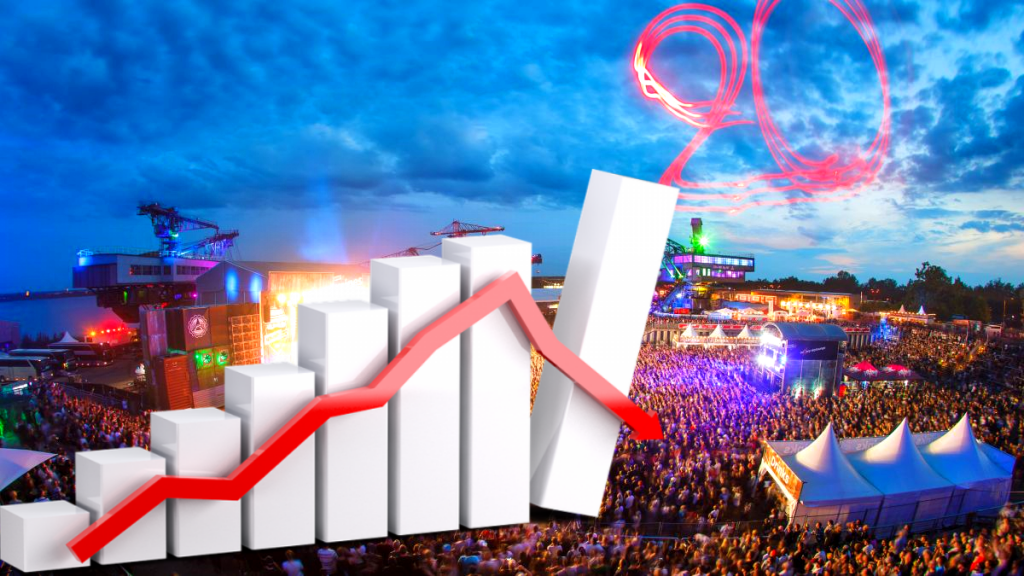
HaMa: Do you get any help from the government?
Krijn: I get the same help as every self-employed business in the Netherlands.
Anthony: The government help my company for a very small part.
Pawel: No, I don’t.
Marvin: Nope
Robin: In some ways they did in terms of taxes, but I could not profit from the financial support options because of certain rules of qualification. Luckily I have a backup plan and I’m able to design and develop for companies outside the music industry. It’s still something I am happy about looking at this situation.
Amrish: We got 4.000 euro from the government, but that’s the only hand out we got….

HaMa: Do you honestly think that the EU has acted in a proper way?
Anthony: No, the measurements are too hard and not effective. This broke more than it solves in my opinion.
Marvin: The starting phase was alright, but basically nobody knew what this virus was about. I think the most important thing is to now look at the facts and adjust the measurements to it. We need to move forward and I think some of the measurements right now are not necessary and will only kick us back to old problems if we don’t handle towards new information.
Robin: The question is: “What is the proper way?” If we look at preventing more casualties, I think this was the right way to do it. It’s better to prevent than cure and our health should be our main concern.
Pawel: Hard to say.
Amrish: Every country has different problems due to corona. United they could learn from each other much more and maybe find solutions for a safer environment. Right now nothing is guaranteed.
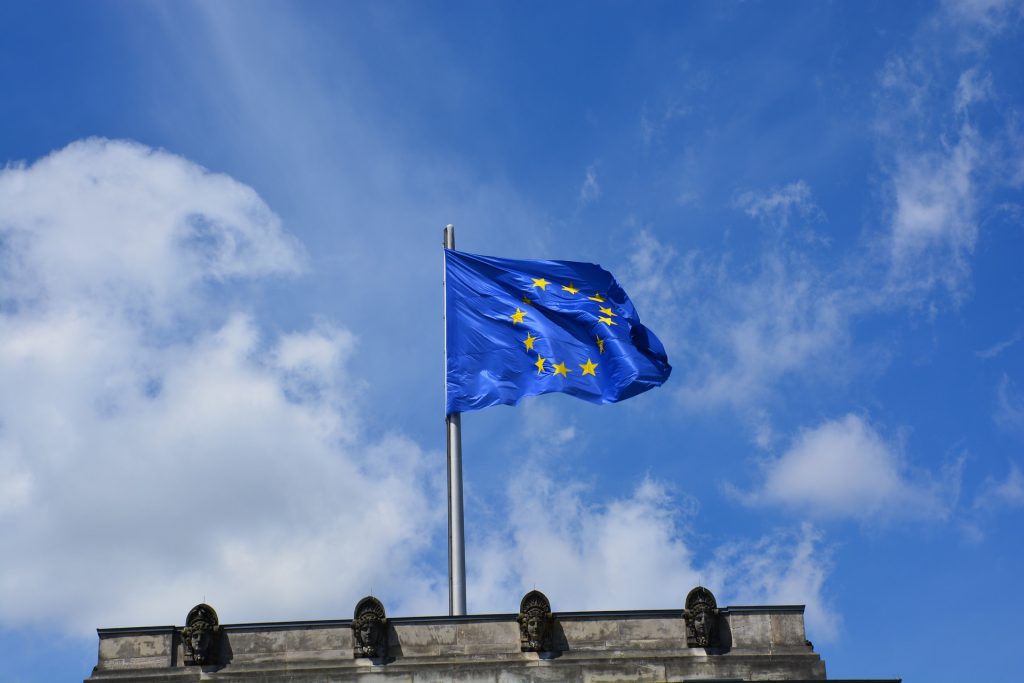
HaMa: If you could name 3 realistic measures the EU and the government could do to really help the event scene what should they do?
Krijn: Well there are some studies about the spread outside, that looks very minimal. Maybe focus on that? Making outside festivals possible or big tents with open sides?
Robin: It would help if we could slowly get more events with small capacities. From there on we can evaluate if we should increase the capacity. Financial support for this sector would also be appreciated.
Marvin: 1. Allow small events 2. Allow people to dance at these small events (what is up with that 1.5 meters?) 3. Give organizations a kind of tool with they can make sure they can focus on only allowing healthy people within their event.
Anthony: Open the event scene in phases. The outdoor events can be active directly, step by step the complete event scene.
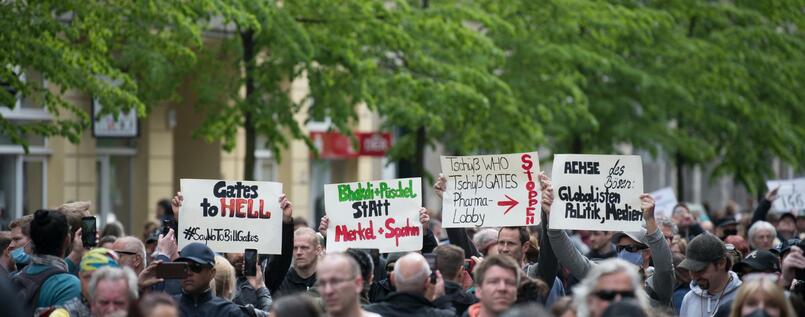
HaMa: If we take a look to Sweden, where no shutdown took place – but the infection rate decreases – do you think that was the better decision?
Pawel: I don’t agree with this fact. Sweden has around 10 millions of people and around 68000 infected while others have more people in their countries and less infections – and all these other countries were closed. So I think Sweden did it wrong, they shouldn’t act that Coronavirus isn’t dangerous. Lockdown is smart because it allows each country to control the borders for example. And Sweden is a good example that shows that their strategy didn’t work.
Amrish: Honestly I don’t know. But I think that something like a health check would help a lot at public venues.
Marvin: No, I think the Dutch way is the right way they approached the virus.
Robin: Nobody has the best decision. There are just other decisions and you can only see the results afterwards. Maybe our government also failed, but we just have to find out about it later.

HaMa: Once events can take place again, are you already thinking of measures in particular to minimize the infection risk?
Amrish: We are thinking in sanitizing solutions, health checks at the entrance of the event.
Anthony: To minimize the infection risk start first the outdoor events.
Robin: As long there is no vaccine available, I think we should try our best to minimize the risk of infections. So get those face masks!

HaMa: Some say that this crisis is a good way to clean the market as there were lately just too many festivals and events. Do you honestly agree with that? Were there really too many events in NL ?
Amrish: There are a lot of Festivals, but never too much!
Marvin: Nah, not really think there are too many (there is still animo). I do think that a lot of fans and festival visitors in NL got spoiled because of it. In the end they can see them every week so they expect more from them
Anthony: If there is a supply and demand, there are not too much festivals and events. The market decides if there are too much events.
Robin: There are a lot of events in NL compared to other countries. But that doesn’t mean there is too many in my opinion. If there would be too many festivals and events, it would die out by itself if there isn’t a demand for it. If we look at it in a positive way, I think a lot of organizers will come with great new idea’s when the whole scene is up and running again.
Krijn: I think there are not too many events in Holland.

HaMa: If the event shutdown endures what are your measures to overcome this crisis?
Anthony: Try to be creative and invent myself with projects that will have a future.
Krijn: Nothing special, I try to work on my production skills and use the time to become better.
Robin: We will overcome this crisis as long as we focus on the music & think of creative new (event) concepts.
Marvin: Keep doing what I do now, which means keep on pushing out high events or small parties of course I would grab every chance I get!
Amrish: Start an international streaming platform for events and DJ’s!

HaMa: What could the people out there do to help or support you?
Robin: Listen to our music, get our merchandise and enjoy our video clips until the moment we can meet at the parties again!
Marvin: Follow my socials and check out my music, especially my latest released album ‘Path to Infinity’.
Pawel: Be in touch with me, support my music, contact me via social media and that’s enough to let me continue what I do. Events are just a little part of the whole business. Events on itself are not the only important thing. You also need music, releases and especially fans.
Krijn: Stream our music on Spotify (Degos & Re-Done!!)
Anthony: If there will be a demand on the projects then the people will support it automatic.
Amrish: BE a part of the new DJ Award and if they would like to become a DJ, or need artist/ management advice to contact us and become a client.

HaMa: Many of you are currently seeking alternative concepts to get in contact with the scene. What are your current projects you would like to highlight now?
Krijn: We are livestreaming more often, studio sessions, DJ sets.
Amrish: We are breaking world records. Recently we organize a 10 day DJ marathon nonstop, a female, a harder styles and a techno/ tech-house DJ marathon for 7 days nonstop. We had around 700 dj’s who came to our studio to be a part of this initiative and we set 7 new world records!
Pawel: New music! That’s the best way to show your fans that you are still active. And not only for the events/mass of people. In the end, events mostly take a place during the weekend but from Monday to Friday people also listen to music at home/work. My mission is to give them new stuff and always be ready to play it when the events are back!
Anthony: Our DJ marathons where we reach out more than 4 million viewers and more than 700 DJs play at our DJ marathons. The first DJ marathon of 10 days nonstop and 3 marathons of 7 days nonstop like the harder styles DJ marathon. In total we were exposed in the international media more than 210 times. Our DJ awards, Dutch Priority Awards and my new Dutch DJs XXL book of 11 kilos, where 400 Dutch DJs and dance industry professionals are exposed in with photos and interviews I took.
Robin: As I mentioned before, we are starting to think of some small corona proof events together with some organizations/clubs. It will be a different experience than usual. But it is all we can do for now to satisfy our true fans.

HaMa: Do you think it’s necessary to wait for a vaccine until large events should be allowed to take place again?
Anthony: No
Krijn: I think that outside events are no problem without a vaccine. Inside old clubs could be a problem with ventilation and filtering maybe. I only have questions about that vaccine to be honest.
Robin: I don’t know if it is really necessary, but I have the fear that this is what it takes to allow the return of the biggest festivals. Let’s hope that clubs will survive for the upcoming winter with some smaller events and we will see what happens in 2021.
Amrish: I think it would be possible to do events for 500 to 1000 people if there is something like a minimum and maximum age like people between 18 -35 and a health check with an infrared thermometer.
Marvin: No, I think that people should indulge in the sources they have now to fight the virus. In the end, you are responsible for your own health, which means you shouldn’t go if you are sick. But that is like something basic I guess?
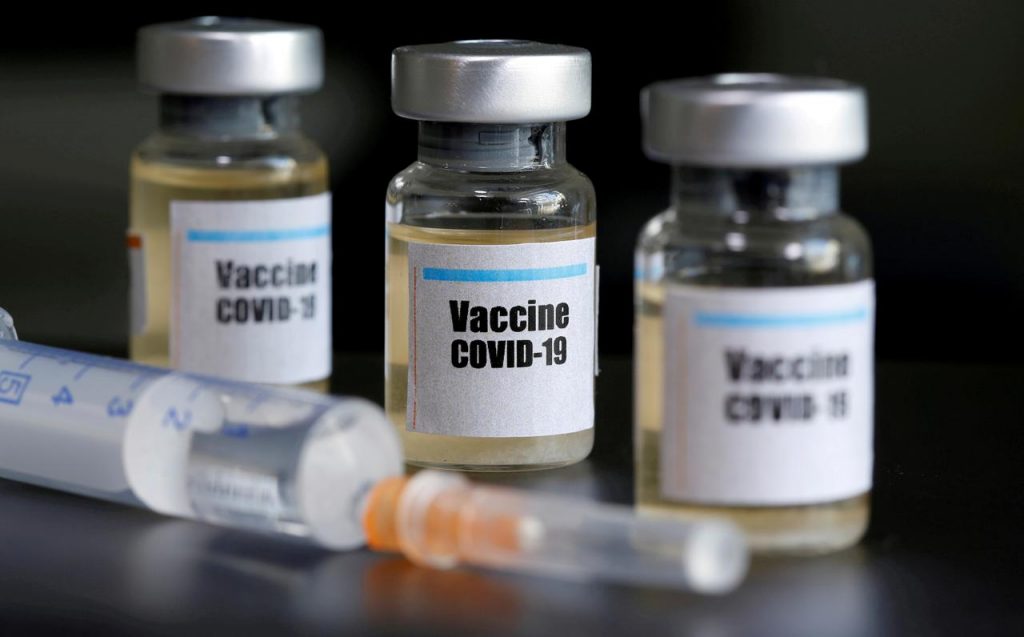
HaMa: What do you think will the scene look like after corona?
Pawel: People are going to appreciate events even more. Everyone that loves music is waiting for music events to return. It’s not only about music, but it’s also about meeting your friends, favorite DJs and having fun.
Krijn: A lot of creative people are now in their studios and they have a lot of time now. Showmakers, lightning guys, content factories and music producers etc. That can result in a lot (and I say….A LOT) of new music, and new music means: new sounds, new arrangements, new hypes.
But in the beginning, it will be hard for all the event creators and crew. So I think the ‘’after corona time’’ will be a few years till everything is ‘’normal’’ if it will get normal.
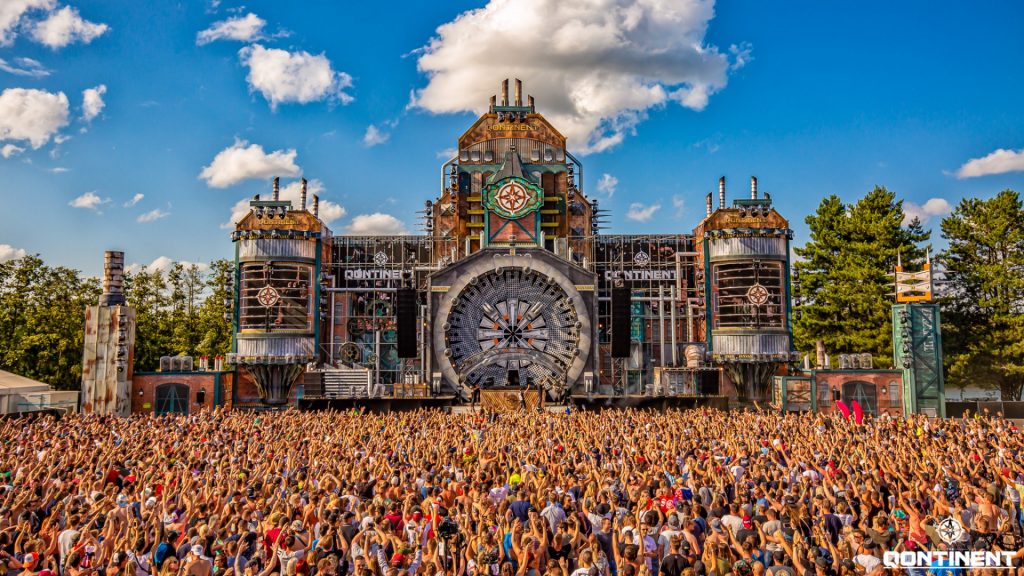
Amrish: I hope a lot of events first of all and off course our own Priority Awards that will change the lives of a lot of DJ’s!
Marvin: Hopefully people would complain less and not be so spoiled when it comes to events. Because of that we could unite even more than before.
Anthony: I will hope bigger than before corona
Robin: I think many would have an overdose of motivation and inspiration. There is so much to think about and to prepare in these quiet moments. And after the coronavirus we will have motivated crowds that have the feeling that they experience their first event again.
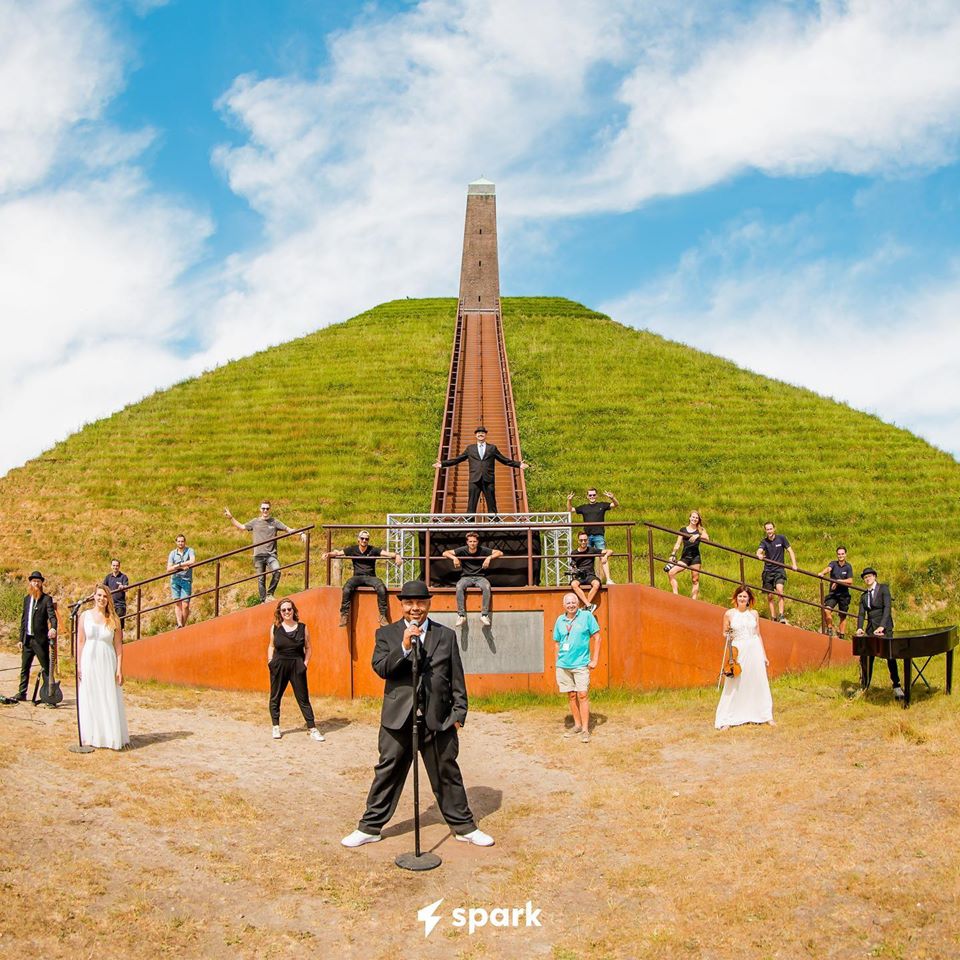
HaMa: We currently see a concept called car events. Like a drive in cinema. Where people look at a DJ from their car. What do you think of this concept?
Amrish: I love it! Back to the past when people were watching videos at the drive-in cinema.
Pawel: I think it’s nice and funny. Just an alternative way to organize during this crisis situation.
Robin: It is one of the nice ideas and it’s a great way to adapt to the situation. I know that it might not satisfy you as a visitor in a way like used to have. But we should see it as a beginning. You are able to meet up with your friends at a safe distance, support the artists and enjoy the music we all love together.
Krijn: I think it’s cool…. For a few times. It’s a great experience after sitting at home for weeks. But I think it’s not for the long term. In Holland is that even not allowed at the moment.
Marvin: Fun and creative solution to still give people that festival feeling during the weekend. Personally I wouldn’t want to sit in a car, but I can totally imagine that from an artist’s perspective it’s a crazy experience.
Anthony: All concepts that will make a difference and there is a demand for is positive.
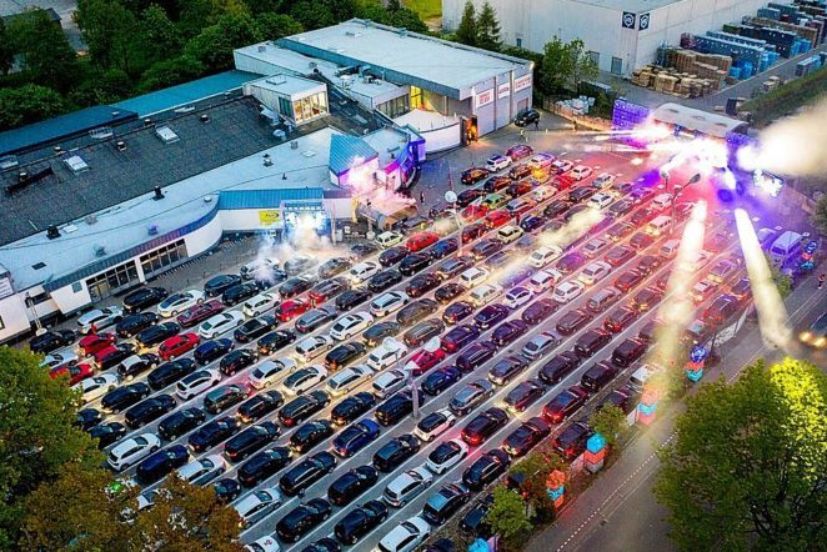
HaMa: Even though it’s hard to imagine, do you see anything positive Corona brought?
Krijn: Yes, there is more social control. Sometimes just a little WhatsApp with’ ’is everything oke?’’ or things like ‘’stay healthy!’’ thinks like that.
Anthony: It makes you more creative and you go further where others stop.
Amrish: Networking opportunities to connect with DJ’s and other company’s and we set 7 world records as DJ School Alphen together with more than 600 DJ s!
Pawel: More time for myself, more time to produce new music, more time for my family and less stress due to traveling and playing music.
Marvin: Yes, definitely. It may sound weird, but because I decided to still drop my album a lot of people were surprised in a positive way. I also think that during this crisis people are more at their computer, so also able to find new artists that they didn’t know about yet. I see a lot of new fans now, which makes me really happy and worth it in these rough times!
Robin: It made me realize even more that it is important to be aware for unexpected events and always think of a backup plan.

HaMa: We are living in a world that is completely globalized – and there are 7.6 billion humans living on this planet. Do you think that there will be more global pandemics in the future?
Marvin: You never know… Things like these can always happen and the bad side is that you never can really be prepared.
Anthony: I hope so not.
Amrish: Everything is possible and yes it could happen. But at this moment I don’t know and I hope that the world learns from this moment.
Robin: We evolve and viruses evolve with us. Sometimes they can get ahead of us and I don’t think it is something we could evade in the future. Therefore, I think that it is highly possible that we could experience this again.
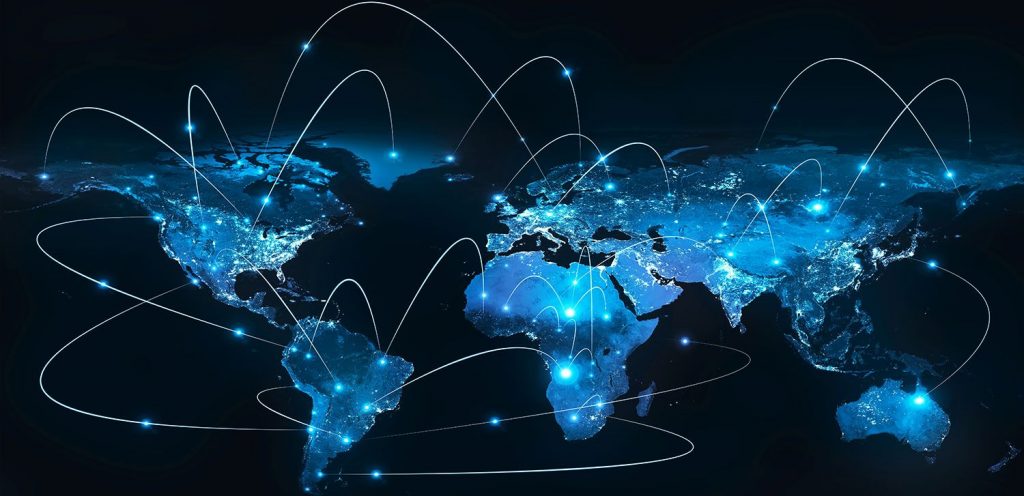
HaMa: Many Artists and Organizations are streaming mixing sessions over the socials (for example Q-dance “Connect”). Do you think this kind of promotion will even persist after Corona or will it vanish once the events are open again?
Pawel: Definitely yes. In my opinion it’s just a good way to be active in the scene and let people feel that their DJs are mixing for them. But when events will take a place again, most of the DJs/Producers will be more focused on their live performances and new music.
Robin: Streams were always there. I think everything will stay as it is, but the focus will be more on the events again.
Amrish: I think it will be a part of online promotion. It’s a great way to reach out to people around the world. One big music videoclip!
Anthony: This will persist.
Marvin: I think that a lot of people bought the equipment to do so, but in the end, people will rather go to an event then watch a livestream. So I think in the long run it will get less every week.
Krijn: Difficult one. I think that many people discovered some of the streams/channels/artists for the first time since corona started. because there were no events at all the only source of some show and music are the new made streams. But will it vanish…. I think when all the artists have a busy schedule again there is no time to stream and recording anymore that often.

HaMa: What do you think can the people out there do now to help you and to help the whole scene to bring it back to where it came from?
Robin: Keep listening to the harder styles!
Pawel: Just be a part of the events, buy the tickets, support the scene as much as they can. If dancefloors would be empty, organizers wouldn’t make events because they would have no profit. But if people keep their interest to see their DJs and support local and bigger events, everything will start running well again.
Amrish: Come to an event when we can party all together. Book your local DJ’s and visit events, buy their music and merchandise. Support your favorite artist and show it!
Marvin: Keep supporting your favorite artists! And definitely don’t do stupid stuff like organizing illegal parties, you put us back even more. Just hold on a little bit longer and make sure we can party again next year!
Anthony: Dance is what brought people together that will be always like that. This will bring the scene back where it came from.

HaMa: As there are no events taking place how do you as an Artist/Producer use the time?
Amrish: We organized the biggest DJ marathons live of the Netherlands and set 7 world records! Expanded our network international.
Krijn: At the moment busy with some new music. And I started to record some production tutorials.
Marvin: I produce a lot more and also, I spend more time now on collabs, which means I am a busy bee haha

HaMa: We currently see a lot of Artists broadcasting video mixing sessions. Have you already done it and if yes how did it feel without any crowd?
Krijn: On the Degos & Re-Done YouTube page are already 7 mixing streams available. Check it out!
Marvin: Yeah I did the APEX Combining Forces livestream & Loud in the Cloud. It was fun because my management and some other artists were there. But yeah it doesn’t even come close to the real deal. You need to provide energy against a screen and that can be though, although I think I
managed well. It also upgrades your camera skills a lot haha.
Amrish: It’s strange without a crowd and still have millions of viewers all around the world watching our live sessions! Crazyyy
Pawel: I did it once and it was cool to record. I prefer to have a crowd in the front of me but I just understand the whole situation and I know that I have to find my way in this crisis. So playing this set without a crowd is strange but cool. It just brings back the old memories when you started mixing music and you played for no one at your home. But it’s cool, the best feeling is when people are watching your livestream and react to it. Then you know you just do it for them and they support you.

HaMa: If you would describe yourself as an animal. What would it be and why?
Amrish: A crazy monkeyyyyy
Pawel: I would be a Sloth, because I like to take my time in making music. And I also like to take some good rest between the performances and travels.
Marvin: I would describe myself as an Owl because these animals are pretty intelligent and really clever. I basically think before I act and another fun fact is that I can also twist my neck 360 degrees. Which means I am an owl yeah..
Krijn: After a few months of gaining weight, I would describe myself as a budgett frog (that’s a fat one!!)
Anthony: A jaguar, nobody or anything can stop me to give up, tit’s strategic and has vision and is never tried to pushing boundaries and is creative to catch his prey.
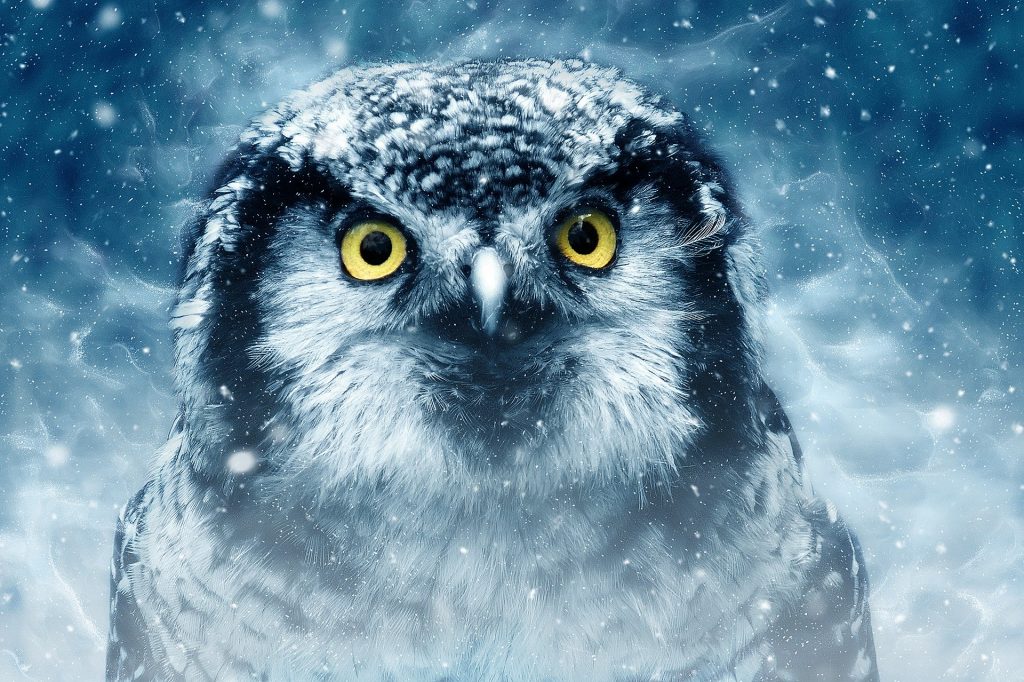
Conclusion
The COVID19 scenario continues. We have just experienced the very first Defqon.1 @ Home edition and there is still no vaccine. But its a fact, that the festival and event sector matters. The contribution to our culture and our economy is huge – and the radius of affected people is enormous. Despite the fact, that small event concepts are currently taking over – its obvious that the scene can’t continue like this forever. The public and the EU has to understand that this sector needs way more attention. And we really hope we will get it asap.
